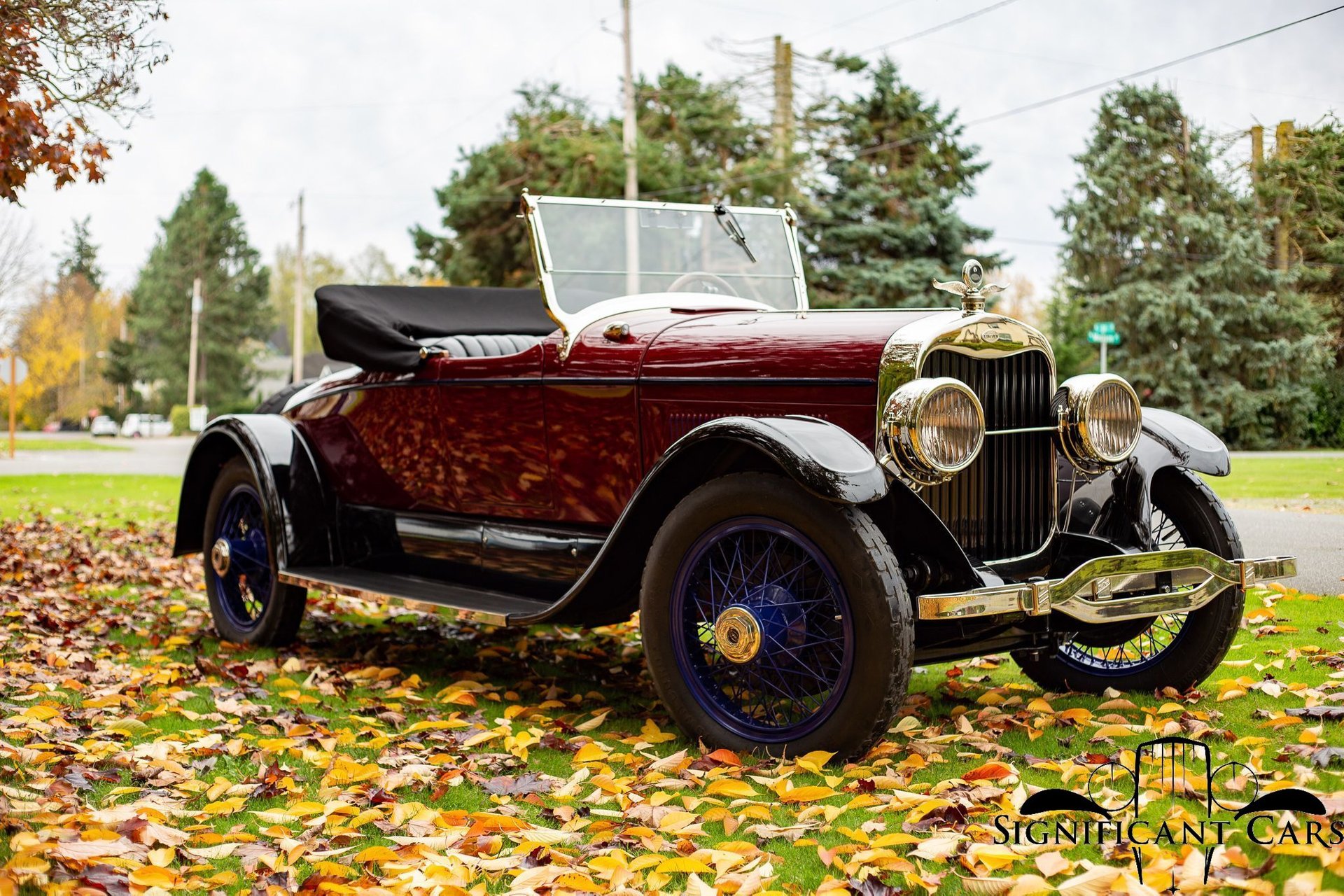Drivetrain
Chassis
Body
1923 Lincoln Model 111 Beetleback Roadster 1 of 2 known Pebble Award Winner
Lincoln is an American luxury car manufacturer, operated under the Ford Motor Company. Founded in 1917 by Henry M. Leland and acquired by Ford in 1922, Lincoln has been manufacturing vehicles intended for the upscale markets since the 1920s. Leland named the brand after his longtime hero Abraham Lincoln, for whom he had voted in the first presidential elections for which he was eligible
The company was founded in August 1917 by Henry M. Leland, one of the founders of Cadillac (originally the Henry Ford Company). He left the Cadillac division of General Motors during World War I and formed the Lincoln Motor Company to build Liberty aircraft engines with his son Wilfred. After the war, the company's factories were retooled to manufacture luxury automobiles.
The company encountered severe financial troubles during the transition, coupled with body styling that wasn't comparable to other luxury makers, and after having produced only 150 cars in 1922, was forced into bankruptcy and sold for USD $8,000,000 to the Ford Motor Comany on February 4 1922, which went to pay off some of the creditors. The purchase of Lincoln was a personal triumph for Henry Ford, who had been forced out of his second (after Detroit Automobile Company) company by a group of investors led by Leland. Ford's company, renamed Cadillac in 1902 and purchased by rival General Motors in 1909, was Lincoln's chief competitor. Lincoln quickly became one of America's top selling luxury brands alongside Cadillac and Packard. Ford made no immediate change, either in the chassis or the V-8 L-head engine which was rated 36.4 SAE and produced 90 bhp at 2,800 rpm.
In 1923, several body styles were introduced, that included two- and three-window, four door sedans and a phaeton that accommodated four passengers. They also offered a two passenger roadster and a seven passenger touring sedan and limousine, which was sold for $5,200. A sedan, limo, cabriolet and town car were also offered by coachbuilders Fleetwood, and a second cabriolet was offered by coachbuilder Brunn. Prices for the vehicles built by these coachbuilders went for as much as $7,200, and despite the limited market appeal, Lincoln sales rose about 45 percent to produce 7,875 cars and the company was operating at a profit by the end of 1923.
This Spectacular Example is one of only 2 Model 111 Beetleback Roadsters know to survive. The car was restored over the course of many years using correct Original NOS parts with advice and consultation from legendary Lincoln experts Jack Passey and Tom Powell. Extensive research was undertaken throughout the restoration process to ensure the car is correct in every manner. 4 Wheel Brakes were added which was a later dealer installed option for these cars. The car features a rare set of 23" Buffalo Wire Wheels, Rear Mounted spare, and Fat Man Steering Wheel. No stone was left unturned in this exhaustive restoration- everything was rebuilt and restored to top show standards. The car has a known history form new having been delivered to a Lumber Baron in Aberdeen, Washington.
Since Restoration the car has been very successful on the Concours Circuit winning its Class at the Crescent Beach Concours; Best of Class and a Special Award at the Forest Grove Concours, and the Significant Lincoln Award at the 2021 Pebble Beach Concours.
This car is without peer really, it is not just arguably, but definitely the finest Beetleback in existence. This design is a pivotal design that predates the Auburn Speedster and many believe influenced not only that car but most speedsters that followed it.



























































